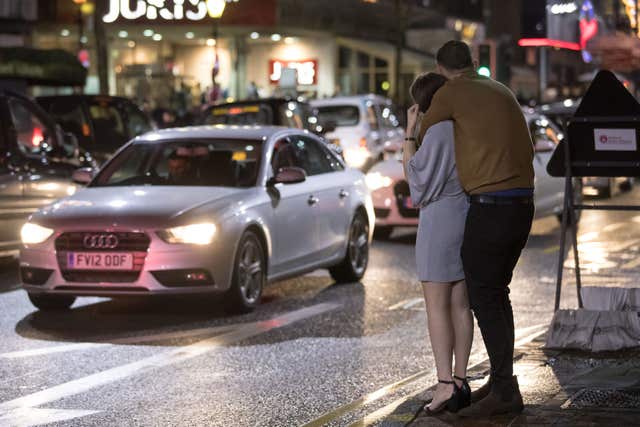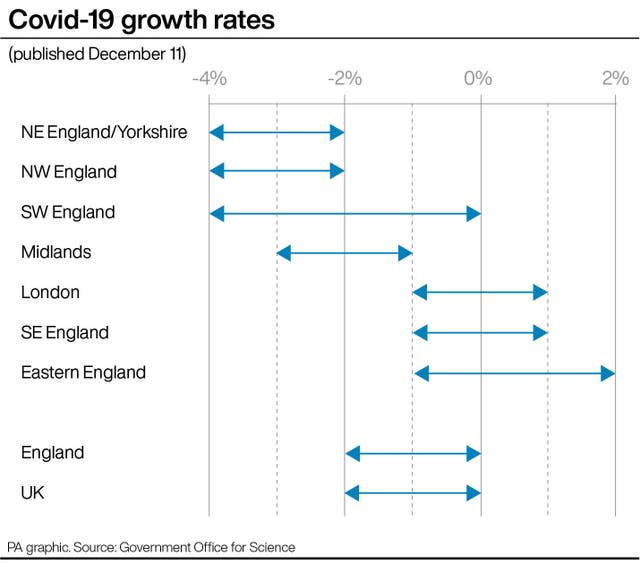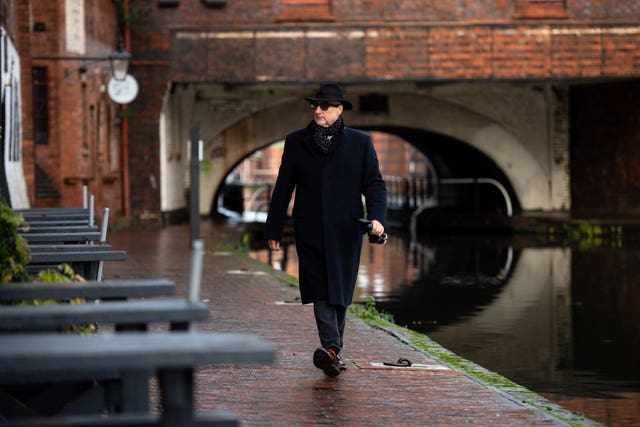Birmingham hospitality trade could take Government to court over Tier 3 controls
Businesses are considering a judicial review bid if the city is not downgraded to Tier 2 after December 16.

Birmingham’s hospitality sector could take the Government to court if Tier 3 controls continue in the city, the leader of its biggest entertainment district has said.
Mike Olley, who runs the Westside Business Improvement District (BID) which is the biggest nightlife area outside of London, said a group of mainly restaurateurs are mulling a judicial review bid.
Birmingham was placed in the highest tier of controls in November, meaning many pubs, bars and restaurants had to remain closed after the end of the second national lockdown.
The Government has said it will review all tiers in England on December 16.
Mr Olley said the restrictions have already cost individual businesses thousands of pounds, adding Government financial aid does not cover overheads.
He warned of court action if the city is not put into Tier 2, which would loosen controls and allow more hospitality venues to reopen, next week.
Mr Olley said: “The hospitality trade, mainly the restaurants in Birmingham, are assembling an application for judicial review at the moment.

“They’re in talks with the (West Midlands) mayor, Andy Street.
“But if they go nowhere, my understanding is the process for an application for judicial review will start if we don’t move into Tier 2, from December 16.”
Mr Olley said Birmingham’s hospitality sector is also closely watching London – which is in Tier 2 but now has an average rate of Covid infections similar to those in the second city.
According to the latest NHS Covid dashboard data, the infection rate in Birmingham in the week to Saturday was 192.4 cases per 100,000 people.
In London, the average rate was marginally lower at 191 per 100,000 over the same period.
Mr Olley said he was “suspicious” of the fact the capital had been placed in Tier 2, however the London infection rate has grown since tiering levels were first announced, from an average case rate of 151 the previous week.
Mr Olley added: “Given the facts, given the figures, I would demand that the Government listen to us and respect the integrity of this sector.”
However he said he has “little hope” Birmingham will be moved into Tier 2.
He said Tier 3 measures have been “devastating” for hospitality businesses in Broad Street.
“We’ve got bars, restaurants, casinos, theatres which are all incredibly safe areas and they’re not trading,” he added.
“Yet they’re still having to pay out massive overheads.
“The money is still rolling out so they’ve been forced to close by the Government and under-compensated by the Government.

Mr Olley was speaking from the Grosvenor Casino on Broad Street, where it costs about £50,000 a week to break even.
The casino had to close in the second lockdown and the Tier 3 decision means its doors remain closed to the public.
But the venue still runs free lunches five days a week for key workers, and has done so since the start of the first lockdown.
The casino is one of many businesses which have shelled out on screens, hand sanitisers and signage to keep customers safe, but have been forced to keep their doors locked.
Mr Olley said the hospitality sector alone in his district employs 12,000 people, putting in about £100 million per year in business rates.
He estimated footfall is down 86% in all, adding the current restrictions are a “massive intrusion on the local economy”.

“It’s a grossly unfair balance.”
Speaking at the time of the tier announcements, Mr Street, the Conservative mayor in the West Midlands, said the move to Tier 3 was “very disappointing” and there “clearly needed to be further economic support” for firms, particularly in the hospitality sector.
Andrew Mitchell, Conservative MP for Sutton Coldfield, and Liam Byrne, Labour MP for Birmingham Hodge Hill, also co-signed a letter to the Chancellor and Health Secretary, before November’s tier announcement, calling for support for the under-pressure sector.
The letter pointed out the sector supports 135,000 jobs and contributes more than £12 billion to the region’s economy annually.





